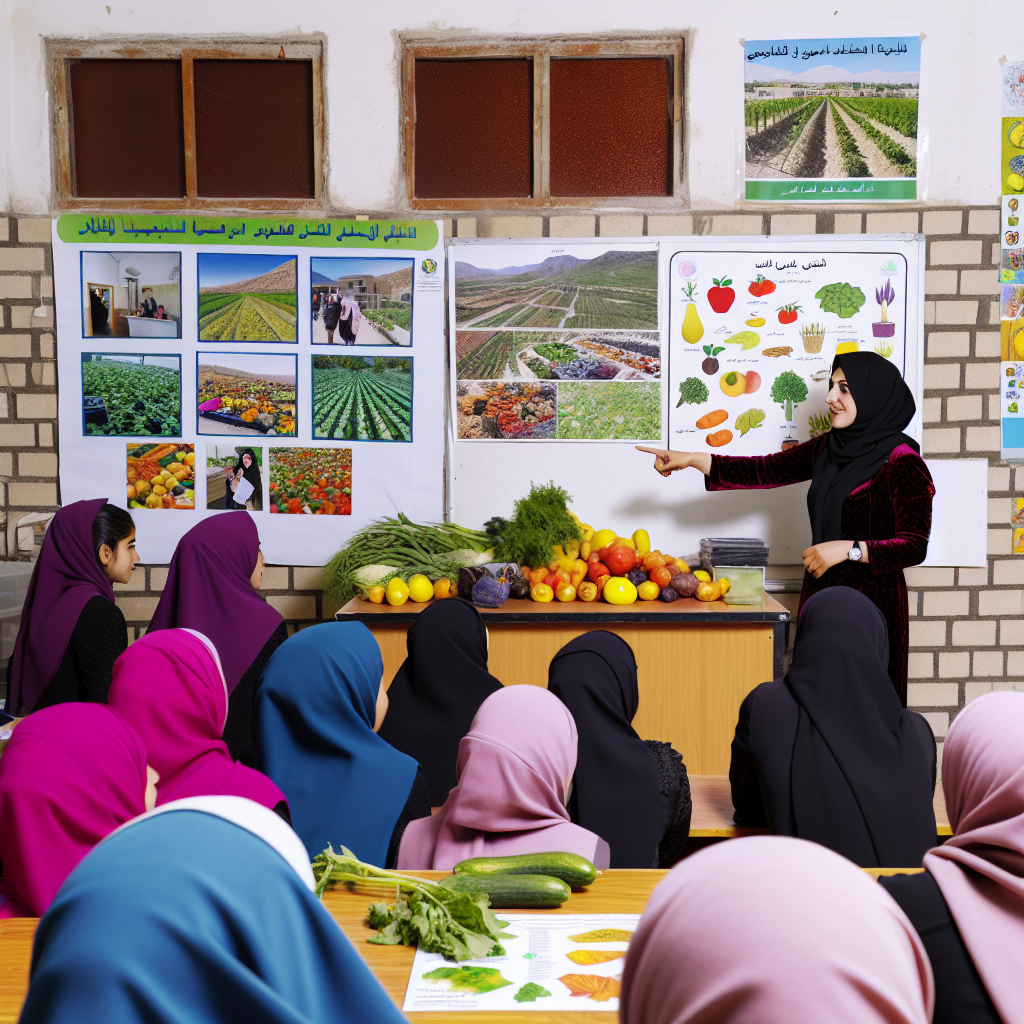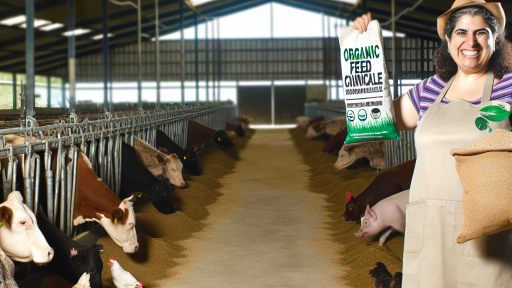Introduction to Local Agriculture and its Importance
Local agriculture plays a crucial role in food systems today.
It connects consumers with local farms directly.
By doing this, it reduces the carbon footprint associated with transportation.
Additionally, it supports local economies and farms.
This approach fosters community resilience and sustainability.
Health Benefits of Local Agriculture
Consuming locally grown food promotes healthier eating habits.
Fresh produce typically contains more nutrients than food shipped long distances.
This freshness also enhances flavor, encouraging more people to enjoy vegetables and fruits.
Moreover, local farms often use fewer pesticides compared to large-scale industrial farms.
Economic Contributions
Local agriculture strengthens community economies significantly.
It creates jobs not only on farms but also in associated businesses.
These businesses include farmers’ markets, restaurants, and food cooperatives.
When consumers buy locally, their dollars circulate within the community.
Environmental Impacts
Local agricultural practices contribute positively to the environment.
They often use environmentally friendly practices like crop rotation and organic farming.
Transform Your Agribusiness
Unlock your farm's potential with expert advice tailored to your needs. Get actionable steps that drive real results.
Get StartedThese practices help preserve soil health and biodiversity.
Furthermore, local agriculture can reduce the need for harmful pesticides and fertilizers.
Fostering Community Connections
Local agriculture helps build stronger community bonds.
It encourages people to engage with their food sources.
Community gardens and local farms can serve as educational spaces.
They allow families and children to learn about nutrition and sustainability.
Benefits of Integrating Agriculture into School Curricula
Enhancing Food Literacy
Students gain essential knowledge about food sources.
They learn how food is grown and harvested.
Such understanding promotes healthier eating choices.
Additionally, awareness of food production fosters appreciation for local farmers.
Encouraging Environmental Stewardship
Integrating agriculture teaches students about environmental sustainability.
Students learn the importance of maintaining biodiversity.
They understand the impact of farming on ecosystems.
This knowledge encourages responsible land use and conservation efforts.
Developing Life Skills
Agricultural programs help students develop practical skills.
They learn problem-solving through hands-on experiences.
Responsibilities in gardening or farming foster teamwork and collaboration.
Moreover, students gain confidence through successful project completion.
Promoting Community Engagement
School programs connect students with local agricultural initiatives.
Students participate in farmers’ markets and community gardens.
Such activities build relationships between schools and local producers.
They also encourage students to support their local economy.
Stimulating Academic Interest
Agriculture-related subjects spark curiosity in various academic fields.
Students explore biology, chemistry, and environmental science through agriculture.
Showcase Your Farming Business
Publish your professional farming services profile on our blog for a one-time fee of $200 and reach a dedicated audience of farmers and agribusiness owners.
Publish Your ProfileThis interdisciplinary learning nurtures critical thinking and innovation.
Additionally, engaging lessons make learning more enjoyable for students.
Case Studies: Successful School Programs Promoting Local Agriculture
Program in Green Valley School District
Green Valley School District implemented a farm-to-school program.
This initiative connects students with local farmers.
Students learn about growing food and its benefits.
Additionally, they participate in planting and harvesting.
This hands-on experience enhances their understanding of agriculture.
The program resulted in increased consumption of fresh produce.
Moreover, local farmers reported higher sales during the school year.
Harvest for Health Program
The Harvest for Health Program started in coastal towns.
It encourages students to grow their own vegetables.
They cultivate gardens on school grounds.
Teachers use this experience to integrate it into lessons.
Students learn science, nutrition, and sustainability.
Furthermore, they develop teamwork and responsibility skills.
This program led to a noticeable boost in vegetable intake among students.
Farm Explorations in City Schools
Farm Explorations takes city students to local farms.
This program includes field trips and interactive events.
Students engage with farmers and learn about farming practices.
Additionally, they participate in hands-on activities.
These activities help demystify agriculture for urban youth.
Participants report improved attitudes towards healthy eating.
Moreover, local farms gain future customers through this initiative.
School Nutrition and Local Sourcing Initiative
This initiative focuses on improving school meals.
Schools partner with local farms to source ingredients.
Students directly benefit from fresh and seasonal produce.
Cafeteria staff educate students about their food sources.
This transparency builds respect for agriculture.
As a result, meal participation rates have increased.
Furthermore, students demonstrate greater awareness of nutrition.
Community Supported Agriculture in Schools
Community Supported Agriculture (CSA) programs have emerged in schools.
Schools subscribe to local farm shares for fresh produce.
Students help distribute the shares among families.
The program fosters community connection with agriculture.
Families gain access to fresh, local ingredients.
Moreover, schools host cooking classes to use these ingredients.
This initiative enhances community involvement and promotes healthy eating.
You Might Also Like: How CSAs Promote Sustainable Farming Practices
Strategies for Collaborating with Local Farmers and Agricultural Organizations
Building Partnerships
Establishing strong partnerships is vital for successful school programs.
Start by reaching out to local farmers to gauge their interest.
Showcase Your Farming Business
Publish your professional farming services profile on our blog for a one-time fee of $200 and reach a dedicated audience of farmers and agribusiness owners.
Publish Your ProfileInvite farmers to share their knowledge with students through workshops.
Moreover, explore partnerships with agricultural organizations.
These organizations can provide resources and education materials.
Creating Experiential Learning Opportunities
Experiential learning enhances student engagement.
Plan field trips to local farms for hands-on experience.
Students can participate in seasonal harvesting activities.
Consider incorporating a garden at the school.
This allows students to grow and understand food sources directly.
Integrating Curriculum with Local Agriculture
Integrate agricultural topics into the school curriculum for relevance.
Science classes can study plant biology using local crops.
Math classes can cover statistics with farm production data.
Additionally, history lessons can focus on local farming practices.
Incorporating local agriculture enriches the learning experience.
Promoting Community Events
Community events can raise awareness about local agriculture.
Organize farmers’ markets at schools to connect families to local produce.
Host workshops demonstrating cooking with local ingredients.
Moreover, involve local farmers in school fairs.
This showcases their products and educates families about agriculture.
Supporting Farm-to-School Programs
Implementing farm-to-school programs enhances access to local food.
Encourage schools to source ingredients from local farmers.
This approach supports local economies and reduces carbon footprints.
Additionally, it provides fresher options for students’ meals.
Promote awareness of these programs through newsletters.
Discover More: Seasonal Eating Strategies for Farm-to-Table Success
Practical Activities and Hands-On Learning: Gardening and Farm Visits
Benefits of Gardening in Schools
Gardening programs enhance students’ connection to food sources.
Students actively participate in planting and caring for gardens.
This experience fosters teamwork and responsibility among children.
Moreover, gardening promotes healthy eating habits in young minds.
Creating School Gardens
To start, schools can designate specific areas for gardens.
Teachers collaborate with local gardening experts for guidance.
Students can brainstorm ideas for what to grow in the garden.
Common choices include vegetables, herbs, and flowers.
Regular maintenance encourages physical activity and outdoor learning.
Farm Visits: A Real-World Experience
Organizing farm visits provides invaluable hands-on experiences.
Students witness farming practices and understand local agriculture.
Farmers can explain their techniques and answer students’ questions.
These visits often spark a deeper interest in food origins.
Integrating Curriculum with Practical Activities
Schools can incorporate gardening into science lessons.
This integration reinforces concepts of biology and ecology.
Additionally, art and writing projects can be inspired by gardens.
Showcase Your Farming Business
Publish your professional farming services profile on our blog for a one-time fee of $200 and reach a dedicated audience of farmers and agribusiness owners.
Publish Your ProfileDuring harvest time, students can cook with their produce.
Community Involvement and Support
Local farmers’ markets can partner with schools for education.
Community volunteers can assist with gardening projects.
Such collaborations strengthen community ties and support local agriculture.
Ultimately, everyone benefits from promoting local food systems.
Gain More Insights: Benefits of Farm-to-School Programs for Farmers

Incorporating Nutrition Education with Local Produce
The Importance of Nutrition Education
Nutrition education empowers students to make healthier food choices.
It promotes awareness of essential nutrients found in local produce.
Understanding nutritional benefits encourages lifelong healthy habits.
Engaging School Programs
School programs can effectively integrate local agriculture into lessons.
Farm-to-school initiatives connect students with local farmers.
Such programs provide hands-on learning experiences for students.
Field Trips to Local Farms
Organizing field trips exposes children to agricultural practices.
Students can learn about plant growth and sustainability firsthand.
This experience builds appreciation for where food comes from.
Cooking Demonstrations
Inviting chefs to schools enhances nutrition education.
Cooking demonstrations highlight the versatility of local ingredients.
Children can engage in preparing healthy meals using fresh produce.
Creating Community Partnerships
Schools should collaborate with local farms and organizations.
Partnerships improve access to fresh produce in school menus.
Communities can also sponsor nutrition workshops for families.
Benefits of Community Engagement
Community involvement fosters a sense of connection to local agriculture.
Families are more likely to support local farmers and markets.
This unity can lead to increased demand for local produce.
Evaluating Program Effectiveness
Schools must assess the impact of nutrition education initiatives.
Surveys can provide feedback from students and parents.
This information helps refine and improve programs over time.
Find Out More: Organic Animal Farming Essentials
Challenges and Solutions in Implementing Agricultural Programs in Schools
Resource Limitations
Many schools face significant budget constraints.
Limited funding restricts program development.
Schools often lack necessary facilities for agricultural education.
Without proper equipment, hands-on learning becomes challenging.
Resourceful partnerships can help address these limitations.
Local farms and businesses can provide essential support.
Curriculum Integration
Integrating agricultural programs into existing curricula can be complex.
Teachers may feel overwhelmed by additional content requirements.
However, providing proper training can ease this process.
Workshops can equip educators with the necessary tools.
Furthermore, alignment with educational standards is crucial.
Community Engagement
Community involvement plays a vital role in program success.
Showcase Your Farming Business
Publish your professional farming services profile on our blog for a one-time fee of $200 and reach a dedicated audience of farmers and agribusiness owners.
Publish Your ProfileSchools often struggle to engage families and local stakeholders.
Hosting events can build strong relationships with the community.
Additionally, outreach programs can promote local agriculture.
Engaged communities are more likely to support school initiatives.
Student Interest and Participation
Capturing student interest in agriculture can be difficult.
Many students view farming as outdated or unappealing.
Incorporating innovative techniques can attract attention.
Hands-on projects can spark curiosity and enthusiasm.
Furthermore, showcasing career opportunities is essential.
Environmental Considerations
Implementing agricultural programs requires careful planning.
Programs must consider environmental impacts of farming methods.
Sustainable practices should be emphasized in curriculum development.
Teaching students about eco-friendly farming can inspire change.
Schools can model practices that contribute to environmental health.
Community Engagement: Involving Parents and Local Stakeholders in Agricultural Initiatives
Importance of Community Involvement
Community involvement enhances the effectiveness of agricultural programs in schools.
Engaging parents fosters a sense of ownership in local agriculture initiatives.
Involvement of stakeholders provides valuable resources and expertise.
Strategies for Engagement
Organizing community meetings creates a platform for discussion.
These meetings help identify interests and concerns regarding local agriculture.
Workshops can educate parents about sustainability and local farming practices.
Building Partnerships
Schools can partner with local farms to enhance educational programs.
These partnerships promote hands-on learning experiences for students.
Collaboration with agricultural organizations can provide resources and support.
Communicating Benefits
Effective communication about the benefits of local agriculture is essential.
Highlighting the nutritional value of locally grown food can motivate parents.
Additionally, emphasizing economic benefits supports local farmers’ livelihoods.
Encouraging Volunteer Participation
Encouraging parents to volunteer in school gardening projects boosts involvement.
Volunteer opportunities also create strong relationships among community members.
Moreover, these experiences can inspire further interest in local agriculture initiatives.
Evaluating Engagement Efforts
Regularly assessing community engagement efforts provides insight for improvement.
Feedback from parents and stakeholders informs future initiatives and strategies.
Ultimately, continuous evaluation strengthens community ties and advocacy for agriculture.
Additional Resources
The Patrick Leahy Farm to School Program | Food and Nutrition …




